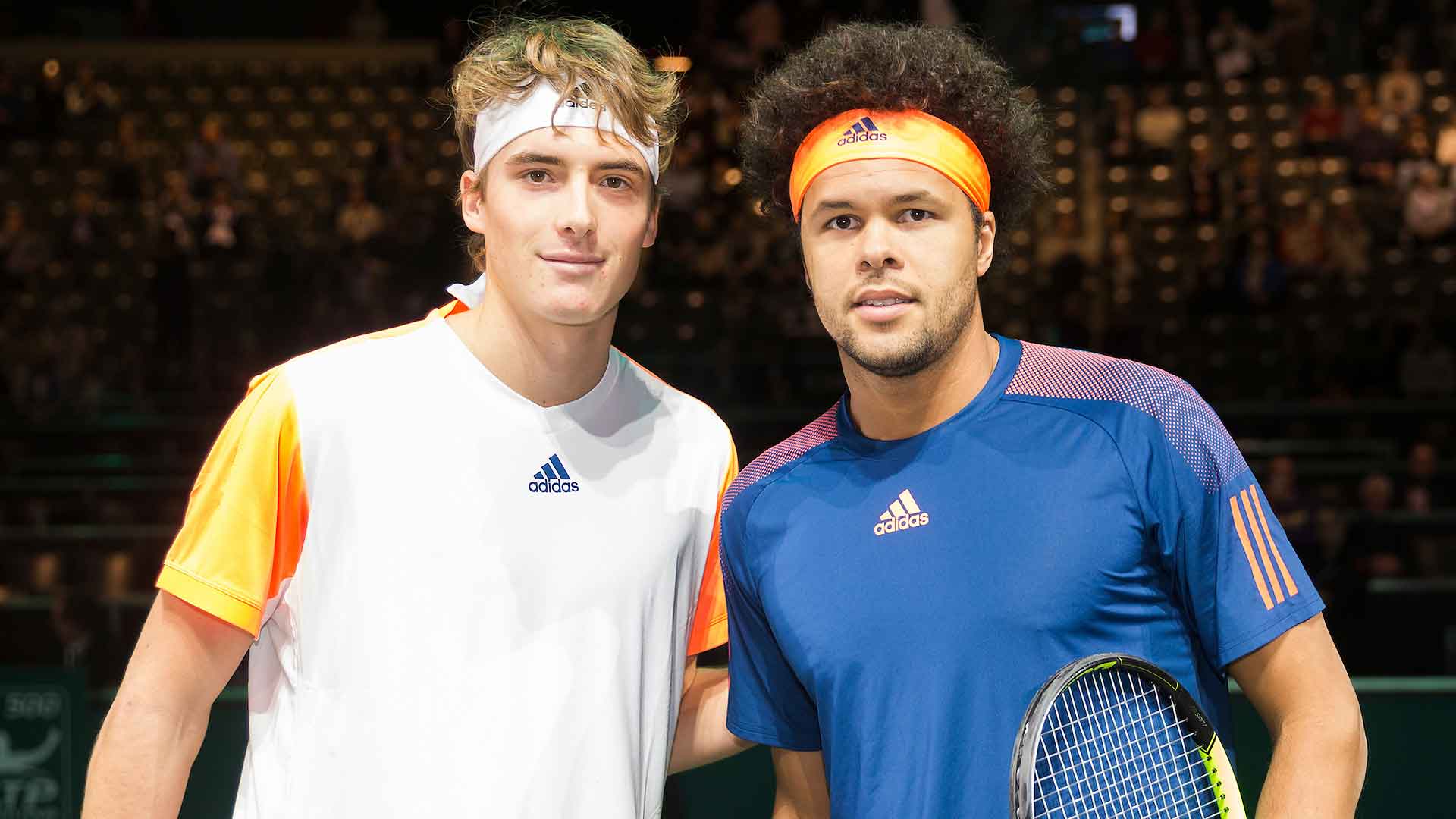Tsitsipas: 'I Took It Too Seriously At Times'
Tsitsipas: ‘I Took It Too Seriously At Times’
Greek star learning to love the game, the process
The Rotterdam Ahoy, nestled in a vast concrete park in the south of the city centre, has not been a happy hunting ground for Stefanos Tsitsipas. Three years on from his first ATP Tour match, when he was fresh out of juniors, having been awarded a wild card by Tournament Director Richard Krajicek, the Greek is still waiting for his first win at the ABN AMRO World Tennis Tournament.
The memory brings a smile to Tsitsipas’ face. “I’m always happy to be in Rotterdam, but I don’t think I’ve ever had a win here – three years in a row,” he says.
It’s an unwanted record for a player who has been in the Top 10 of the FedEx ATP Rankings for almost a year now. This time, he hopes for a big week.
“I played my first ATP Tour-level match against Jo-Wilfried Tsonga, and I started the match really well, although I lost,” said Tsitsipas on Sunday. “I hadn’t played much on the [ATP] Challenger Tour. I was mostly playing Futures. Richard gave me the opportunity to play, with a wild card, which was really big for me at the time. It gave me my first experience of playing against the top guys… and Jo went on to win the tournament.
“I did feel like a superstar, playing at that tournament. I saw myself more as a junior. I was so excited and wanted to get the realisation of how the top guys played. It was my first good experience. In a way it does feel like a long time ago, but time has flown by so far. It’s not long really. I’m now playing here for a fourth time. I keep learning week-by-week and I can see a much different Stefanos to the first time I played here.”

Certainly, much has changed for the 21-year-old, who followed his 2018 Next Gen ATP Finals title success with a career-best 2019 season, which included the Nitto ATP Finals crown. What the past 12 months has taught Tsitsipas is the need to conserve energy, to not adhere so strictly to his perfectionist nature and let things go for future benefit.
“I am managing my energy wiser now, knowing when to push and when I need to conserve some energy,” said Tsitsipas, who has used a sports psychologist since the age of 12. “It was around this time last year when I felt exhausted… I think your mindset changes, sometimes you want to play more or play smarter and conserve energy. It’s about getting to understand the game better and processing certain things.”
The humbling nature of Tsitsipas’ 6-2, 6-4, 6-0 semi-final loss to Rafael Nadal at the 2019 Australian Open lingers in the memory and the Greek, who won three ATP Tour titles last year, continues to take lessons from that experience in Melbourne.
“Tough losses are important for my career as they make me want to come back stronger, and without them I feel like I’m perfect: which I’m not,” Tsitsipas told ATPTour.com. “They are crucial for everyone. That semi-final loss was painful, even though it was in three sets. I came so close to reaching a Grand Slam final, something I have always dreamed of doing. I also didn’t deliver much in that match, he played well. It was a shame, as I’d played well in the two weeks. I went back to the court two days [later] and started to improve.
“You can’t hit winners and aces all of the time, but I had this let-down [last] summer. I was trying to get better and better, but I started to go backwards — when you put in so much work and effort, but it has the reverse effect. But that’s what happened, and I knew I had to loosen up and not to expect too much. I had to enjoy the game, and not go out to get a big lead and win. You can’t get everything perfectly done.”
Having contested 28 tournaments last year, Tsitsipas hopes that better scheduling will prevent another burnout in 2020. He remained in Melbourne last month for a couple of days after his third-round exit to Milos Raonic, before returning to the south of France to train.
“Burnout is a mixture of a lot of things – stress before and after the match, and trying to reach your goals,” said Tsitsipas, who had a 4-6 match record in August and September last year. “It’s mostly mental, rather than physical, but it’s about just having a good balance on and off the court. Not so much seeing tennis as a job, more as a game. I feel like I took it too seriously at times, I expected too much, demanded too much. The more matches you have, with that mindset, the closer you are to burnout.
“I feel like I need to loosen up sometimes and enjoy the game. I also think I can’t play at 100 per cent every single point. I had a pretty spectacular year [in 2019] and the toughest thing will be doing the same this year, through different formulas. I don’t want to duplicate, but I want to do better. I am always aiming for more.”
This week, Tsitsipas will be hoping that Hubert Hurkacz, his first-round opponent, doesn’t continue his unwanted Rotterdam losing streak. Four of their five ATP Head2Head meetings came in 2019.

